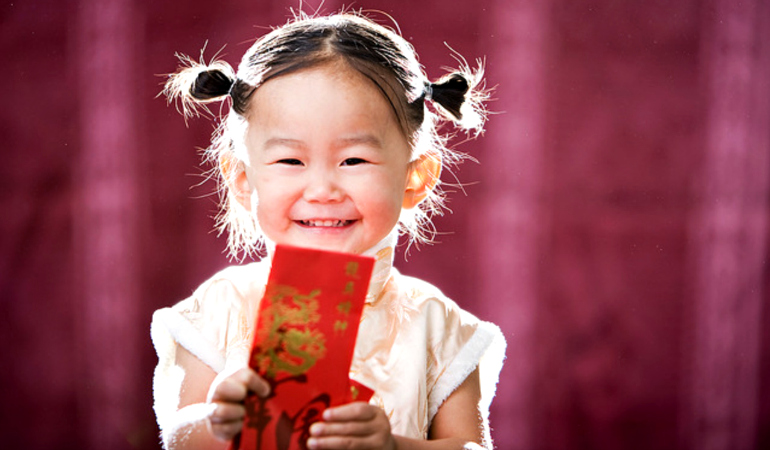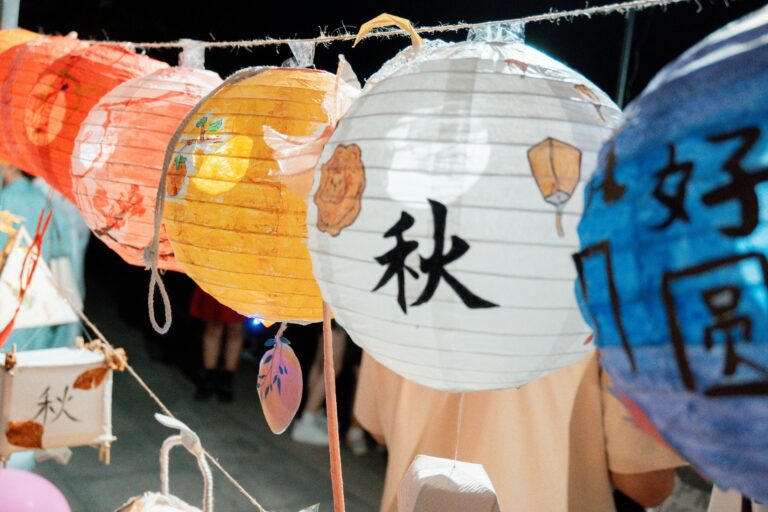“Not only Hongbao (红包, which means “red packets” are the red envelopes with money inside) should be present in the money transactions scenario, it’s also supposed to facilitate emotion expression and interesting interaction,” stated by Zhang Xiaolong, credited as “Father of WeChat”.,senior executive vice president and president of WeChat Group during the 2019 Wechat Open PRO in Guangzhou.
As far as back in 2015, the Year of Ram, WeChat Pay, teamed up with State-owned China Central Television (CCTV) which holds Chunwan (春晚, Spring Festival Gala,held on Chinese New Year’s Eve), and obtained massive public attention with 1 billion red packets on 15th February. In the same year, there were 1.4 billion red packets exchanged through WeChat on Double Seven Festival (七夕节, Chinese Valentine’s Day), and astonishingly, 2.2 billion were exchanged during Mid-Autumn Festival (中秋节). Wechat Pay became a hit with consumers in the context of mobile payments battle with its prominent rival Alipay.
Hongbaos are a tradition deeply rooted in the Chinese culture of exchanging money during holidays. Digitalization of this tradition revolutionized the Chinese e-commerce industry, and further, its impact on international companies who have business in China.
The long history of the red envelope
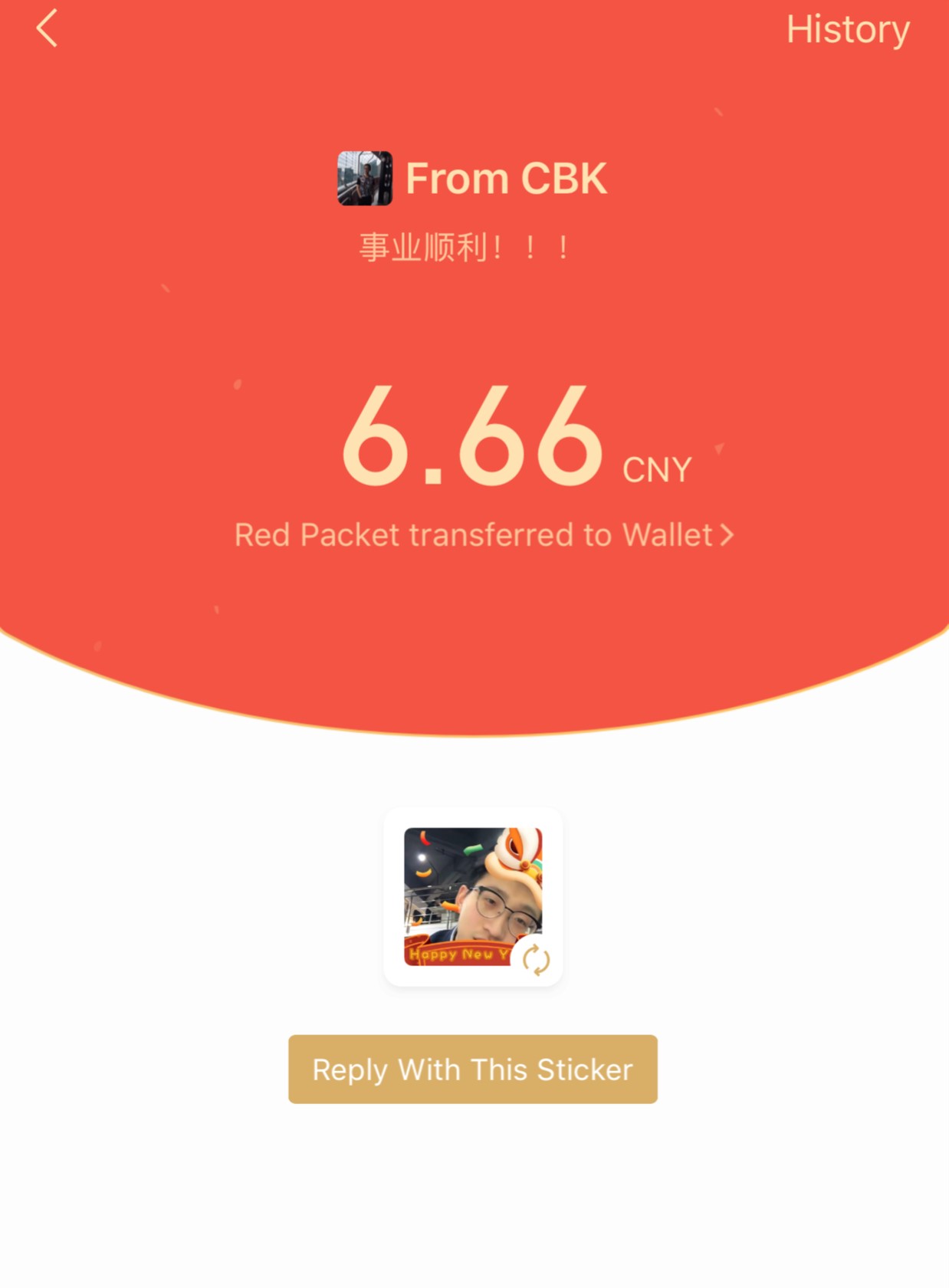
Hongbao, also known as “Lucky money”, is a well-known Chinese tradition which can be traced back to the Ming Dynasty. The tradition still maintains its appeal and importance to Chinese families, whether in China or overseas. Hongbao is often given by relatives, friends during special occasions such as weddings, birthdays or the Chinese New Year, to wish for good luck and fortune in the coming year, and of course, for lifelong happiness and success.
The change towards monetary gifts is partly due to the development of mobile payments The digital red packet has become mainstream in China. In terms of the way people exchange their blessings, the amount of money is not as important as the meaning behind the numerical figure of the money. For example, 5.20 or 52.0 RMB means “I love you” because the pronunciation is similar to “I love you” in Chinese. Similarly, 6.66 or 66.6 RMB is “Good luck”, 8.88 or 88.8 RMB means– “Huge fortune”.
The modern form of Hongbao is a digital red packet which provides Chinese people with a convenient way to deliver their wishes. Since historically a majority of Chinese people used to express their feelings indirectly, through gifts and favors like Hongbaos. Thus, the money involved in the digital message entitled with blessing words to show fondness, care and good wishes.
How Hongbaos as a mobile payment function is expanding the Chinese mobile payment system
Digital payments effectively changed the working definition of ‘Hongbao’ from just material envelopes to digital and material envelopes. The digitalization of the deeply rooted tradition of Hongbaos was behind the explosive growth of mobile payments users. Therefore, the digital Hongbao function has evolved from a tactical approach to a true growth strategy. China is the world leader in the broad usage of mobile payments and its market value.
The star hour of the red package in China
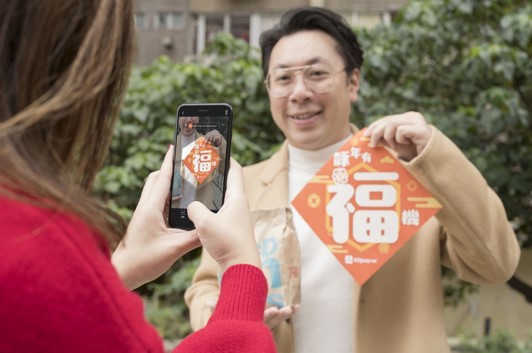
CCTV Spring Festival Gala (Chunwan, 春晚), is one of the most watched television show in the world. It is viewed by over 700 million people and is much anticipated every year – it can rightly be called the Chinese equivalent of the Oscars or the Super Bowl. The Gala features different acts, including singing, dancing and comedy. During the four-hour show, Hongbaos gets considerable attention. The trick lies in the interaction of the audience in accordance with the signals shown on TV. The audience expects to get free money via scanning QR codes and shaking their phone when the ‘shake’ signal appears on a screen. As a result, digital Hongbao creates a chain reaction and easily includes people in the interaction. Hence, we can observe how the longstanding Chinese tradition turned into a modern trend and an effective tool for interaction with the Chinese audience. The public base of the gala generates much potential growth for mobile payment business. That’s the reason why internet conglomerates (Baidu, Alibaba and Tencent) have competed over the partnership with CCTV every year since 2015.
Alipay, for instance, came up with an idea using AR (Augmented Reality) technology to encourage people to scan a Chinese character fu (to receive red packets supported by Alibaba and other sponsors.
Another interesting game created by WeChat, is “Shake Feature” (摇一摇), in which the viewers will literally shake their mobile phones when instructions show up on TV during each act, each person who shakes his or her phone will get different amounts of money. When the game was first announced during the live broadcast in 2015, WeChat users shook their phones.
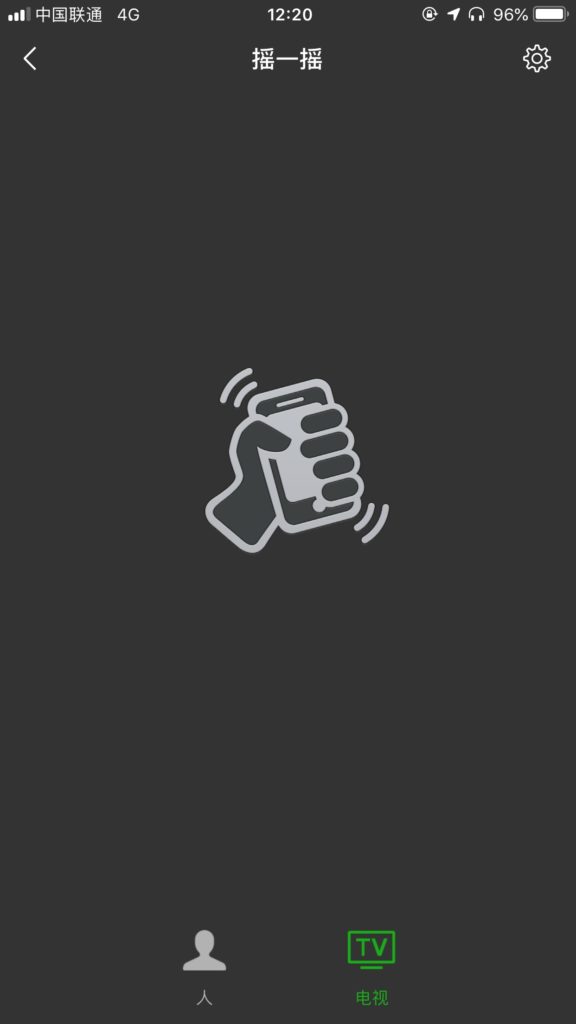
[Source: Daxue Consulting]
The history of the partnerships between mobile payment companies and state enterprise CCTV
| Partner with CCTV | Value (million) | |
| 2015年 | 500 | |
| 2016年 | Alipay | 800 |
| 2017年 | Alipay | 200 |
| 2018年 | Taobao | 1,000 |
| 2019年 | Baidu | 1,900 |
The history of partnership between digital platforms and state enterprise CCTV
[Source: China Daily]
In 2014, Tencent decided to equipt WeChat’s “lucky money” feature with a gamification mechanism that went instantly viral. Whoever wishes to give away money in the WeChat group can choose to divide the amount into a certain number of packets in which WeChat randomly splits the Hongbao.
In 2015, Shake feature was the most popular function of WeChat during Chinese New Year. This major advantage enabled WeChat to achieve a total of 120 million red envelopes sent during that TV promotion and 1 billion on New Year’s Eve alone. The joint activity between Alipay and Sina Weibo wasn’t as successful as WeChat’s New Year promotion but still generated 240 million Hongbao on New Year’s Eve and gifted cash, prizes and coupons worth well over 600 million RMB from February 11 to February 19.
In 2016, Baidu, therefore, followed in the footsteps of its two main competitors in an aim to drive brand awareness and encourage people to use their mobile payment tool, Baidu Wallet. Between Jan 28 and Feb 8, the company claims that users sent 4.2 billion red envelopes containing a total of 300 million RMB. However, currently, Baidu wallet has a relatively small user base compared with Alipay and WeChat Pay.
In 2017, Alipay released its AR Hongbao game, in which users could scan objects with their smartphones to hide and find red envelopes around them. In this development stage, WeChat’s much-loved Hongbao feature accounted for 14.2 billion red envelope exchanges on New Year’s Eve, 7 times more than total volume in 2015, peaking at midnight with 760,000 transactions per second.
In 2018, Taobao forged the partnership with CCTV with the value of 1 billion RMB to send to Chinese netizens. Not offered by Alibaba alone, however, it is actually supported by Alibaba and online retailers together.
In 2019, the upcoming Spring Festival Gala brings the Chinese search engine company-Baidu as its partner to together celebrate this country-wide event. Baidu decides to allocate up to 1.9 billion RMB of digital cash in the lead-up to the Year of the Pig. The free money is deposited directly in the recipients’ accounts with the app operator. The recipient can use the digital cash for future purchases via the app or resend it as a gift to friends and relatives who are using the same app, thus maximizing the level of participation for existing users and drawing in new customers.
With 5 years having passed, Hongbao becomes the go-to solution for encouraging users to adopt specific mobile payment platforms from individual companies.
Baidu’s motivation to invest in this year’s Spring Festival Gala
It can be assumed Baidu hopes to drive more traffic from this year’s Spring Festival Gala, to gain much more exposure from consumers. It is believed that Baidu has lagged behind in terms of mobile payment development, so it tends to up its game by introducing something interesting in this crucial marketing timing.
Undoubtedly, the capability of AI (Artificial Intelligence) for Hongbao interaction games unveils an advantage of Baidu. AI technology advancement complies with the national strategy that encourages domestic technology enterprises to independently develop and to apply innovation to further spur economic growth. Though Innovative mechanism of giving away red packets and considerable amounts of money, it still remains uncertain whether Baidu can grab a large piece of cake from mobile payments market where Alipay and WeChat have dominated for a long time.
How can international companies leverage Hongbaos for the year of the pig?
As mentioned, this long-lasting tradition is already in Chinese tradition, which is deemed as a critical opportunity for international players who are developing or want to run a business in China. Red packets can transform into effective and efficient communication tools, which eventually influences the corporate culture.
- Starting from 21st January, 2019,the customization cover for visual red packets is available for WeChat corporate accounts (企业微信), which allows companies to customize their red packets to differentiate from others.
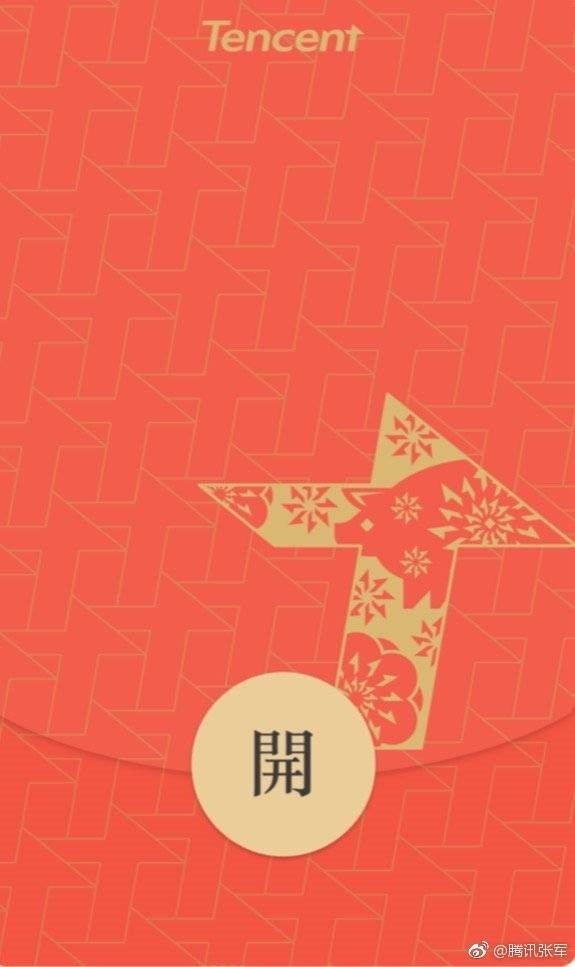 |  |
[Source: 36kr]
This new feature signals that WeChat as an everyday-used chat tool is diverting some of its focus on the business service side. WeChat highlights that the new type of red packet featuring the corporate customized cover will improve business digitalization and business ecosystem. For international companies in China it is recommended to register WeChat corporate accounts; also, they can catch up with the new feature, to customize a new Hongbao cover which stands for the company, and as a result, make the Spring Festival as a powerful marketing campaign to both employees and customers. For employees, this will enhance their identification and loyalty to the company. For customers, this can be a fruitful interaction with a target audience, which further forms and enhance their loyalty and grow a firm’s brand awareness. If your idea is creative enough, the cover can easily go viral on the internet, it’s a low-cost option for a potentially profitable outcome. In addition to the unique design of Hongbaos, users’ own stickers are soon expected to appear in the red packets together with money sent to friends. Therefore, WeChat wants to extend the boundary of Hongbao, in which the amount of money is only a part of communication, while personalized stickers can reveal added value and emotion to receivers.
For foreign firms who have a business online, we recommend establishing strong connections with customers by sending red packets as coupons during some special days. For example, in 2018 China’s Double Single Day, Nike and Uniqlo among other international retailers on Tmall offered various kinds of red packets to entice consumers. If the customization cover for WeChat corporate accounts is essentially a service for corporations, numerous discounts featuring in different online stores of Tmall, as a form of Hongbao, have become commonplace for consumers in special occasions.
To draw customers and lock them in needs international companies to go with the flow of traditional culture evolution being gradually used for commercial objectives. After all, B2C relies heavily on customer satisfaction and customer retention.
In a few days, the Year of Pig will see diverse types of interaction that instills as much as entertainment into financial incentives. It’s reported that apart from WeChat, Alipay, Baidu and Weibo, some newly emerged social media or online platforms such as Pinduoduo, TikTok, Qutoutiao and so forth, will join the dazzling winter battle for capturing audience attention. By that time, a large majority of Chinese people would enjoy the moment of family reunion, homely atmosphere and have time to instantly and constantly touch screens to open digital red packets. International brands could definitely leverage the nationwide celebration to reinforce relationships with Chinese consumers.
Author: Will Qian
Daxue Consulting helps you get the best of the Chinese market
Do not hesitate to reach out to our project managers at dx@daxueconsulting.com to get all answers to your questions.


